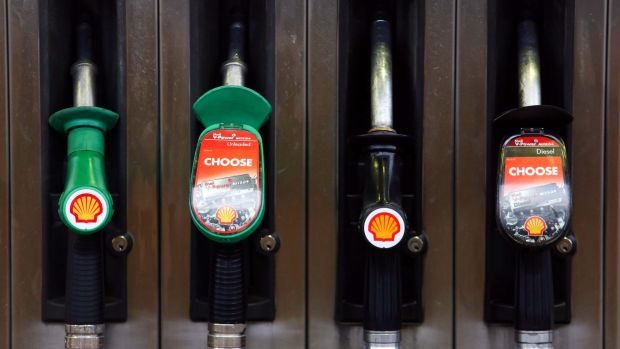Regular unleaded petrol - the most popular fuel choice among Australian motorists - would be completely phased out under a series of radical proposals by the Turnbull government.
Banning regular unleaded petrol would dramatically improve the quality of Australian fuel, rated the dirtiest in the developed world, but would likely lead to substantial price hikes for motorists.
More World News Videos
Greenhouse gases: not just a bunch of hot air
From tracing the exact source of CO2 in our atmosphere to measuring the earth's "carbon budget", the scientists studying climate change know a lot more about the greenhouse effect than you might think.
Premium unleaded petrol costs an average of 10.7 cents more per litre than regular unleaded, which has been the standard fuel for Australian vehicles since leaded petrol was phased out by the Howard government.
The operators of Australia's four remaining oil refineries - two in Victoria, one in Queensland and one in Western Australia - would also be forced to rebuild their plants, with costs potentially running into the billions.

A government discussion paper quietly released on Tuesday afternoon argues that reducing the amount of sulfur in the petrol sold in Australia would produce strong environmental and health impacts. Australia has the lowest quality petrol of the 35 countries in the OECD, below Mexico, Turkey and Estonia.
The paper proposes five options, including:
- Phasing out regular unleaded petrol over two to five years, with sulfur in premium unleaded and ethanol blends limited to 10 parts per million (down from 50ppm);
- Bringing Australian standards into line with Europe, with a 10 ppm sulfur limit for all fuels including regular unleaded (down from 150ppm);
- Limiting sulfur in regular unleaded petrol limited to 50ppm from 2020 and 25ppm for premium unleaded; and
- Business as usual
NRMA spokesman Peter Khoury said the association supported improving Australian fuel standards but was growing "increasingly concerned" about the ideas suggested by the government.

"If you go down the path of phasing out regular unleaded you would be exposing motorists to even more rorts than we are now," he said.
"Premium unleaded already costs 21 cents more than ethanol - imagine what could happen if we adopt European standards."
The Australian Automobile Association said in a submission to government that reducing the availability of regular unleaded petrol would have "significant cost implications for the vast majority of motorists".
"This would be particularly bad for those that drive older vehicles, who would be forced to pay a higher price for fuel, without any emissions benefits being realised."
Regular unleaded petrol is used by around 80 per cent of motorists in the states and territories outside NSW. In NSW, which has an ethanol mandate, regular unleaded is used by around 22 per cent of motorists, premium unleaded 30 per cent, ethanol 18 per cent and diesel 30 per cent.
The paper acknowledges the the impact on "different socio-economic groups" of phasing out regular unleaded will have to be carefully analysed. It says particular attention will also have to be given to the impact on regional communities and domestic refineries.
The Australian Institute of Petroleum has warned the introduction of European standards here would threaten the viability of the refineries, three of which have already closed in the last five years.
"Given the potential impact on Australian oil refineries we're seeking a careful and thorough consideration of costs and benefits of change, particularly to refineries and Australian motorists," chief executive Paul Barrett told Fairfax Media.
The closure of the Vitol-operated refinery in Geelong would have major economic ramifications for the Victorian industrial city.
An AIP submission to the government's fuel review said the industry would need at least five years to implement any significant changes.
"If the implementation of the 10ppm sulfur petrol leads to refinery closures, it will also place a significant volume demand on the import market in Asia providing upward pressure on the price of new Australian grade fuel specifications," the submission warns.
When releasing the discussion paper on Tuesday, Environment Minister Josh Frydenberg and Infrastructure Minister Paul Fletcher said the proposals, open for consultation until March, were "designed to keep Australia in line with international vehicle markets and keep us enjoying some of the cleanest air in the world".
Melbourne motorist Alison Lansley said she would struggle to afford the switch to premium unleaded for the family's 16-year-old Toyota. "I guess if they mandated it, we wouldn't have much of a choice. But if it's better for the environment, that's okay," the Carlton resident said.
But Patrick O'Neill was angered by the proposal. "It would piss me off that I have to pay more for something I didn't want," the Albury father of two said. "I can afford it, but my kids can't, so that's not fair."
- with Alexandra Laskie















229 comments
Comment are now closed